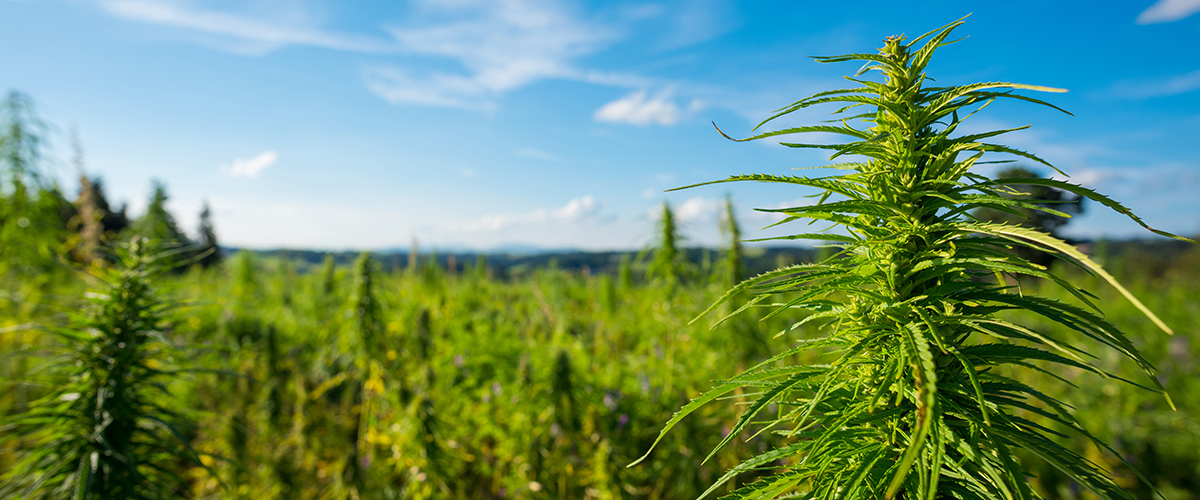
Hemp industry in Vermont, growing year after year, has loosest restrictions in nation.
The Green Mountain State has another reason to live up to its nickname now that Vermont has established a robust hemp industry. It’s been four years since Vermont legalized hemp cultivation, and farmers there are once again celebrating a successful harvest. As the state’s growing season comes to a close, farmers there are reflecting on what new lessons were learned this past growing season.
The Beginning of Hemp in Vermont
Hemp cultivation was first legalized in 2013 when the Vermont Legislature and Governor Peter Shumlin passed S.157/Act 84. The law made it legal for farmers in Vermont to begin planting hemp fields. Restrictions on hemp farmers in Vermont are few:
- Interested hemp growers can get hemp licenses for $25 a year.
- The state does not mandate background checks or set acreage limits.
- Those wishing to grow hemp must register with the Secretary of Agriculture, Food and Markets.
Hemp cultivators are not required to test their hemp to ensure it is below the 0.3% threshold for THC, and hemp grown in Vermont is only tested when it is requested by law enforcement to verify it is hemp. Hemp cultivation operations not included in the registry may be considered marijuana cultivation operations by uninformed law enforcement agencies and might be subject to investigation and prosecution under Vermont criminal law.
Vermont passed its law the year before hemp cultivation was legalized nationwide by the 2014 Farm Bill. Because of this, Vermont hemp growers are out of line with the federal government’s hemp policy, which requires hemp growers to participate in pilot programs tied to local universities or state agricultural authority. However, this also frees them up fully pursue the hemp market.
An Ideal Climate
Hemp plants have been growing well in Vermont’s microclimate, attracting more farmers and encouraging growers to plant larger hemp plots on their land. Almost 90 growers registered with the state of Vermont to grow hemp in 2017, four times the number that registered in 2016, and hemp crops in 2017 took up over 560 acres.
Climates already experienced in growing hemp, like in Canada and Europe, are close in latitude to Vermont. That means seed acquired by Vermont growers from these regions can see higher germination rates than if the same seeds are sown in states farther south, giving Vermont farmers an edge as America reintroduces hemp to its farms.
The products made from Vermont’s hemp range include:
- Livestock feed
- Textiles and fibers
- Biodiesel
- Clothing
- Food products
- CBD supplements
It is this last product that seems to have growers most excited. The CBD hemp oil market is projected to reach $1 billion by 2020. In fact, hemp destined to be used to create CBD oilgoes for around 100 times more than hemp used for its seed.
According to Marijuana Business Daily, hemp cultivators in Vermont are making the following for their hemp:
- $100 per pound for hemp used to produce CBD oil
- $0.80 – $1.20 per pound for seeds used in food products
- $0.10 per pound for hemp stalks used for fiber
With the hemp market anticipated to grow further in coming years – riding on the strength of CBD oil sales – more farmers in Vermont are sure to pursue a hemp license in the future.
Obstacles to Hemp in Vermont
Even as it sees unprecedented growth in its hemp market, Vermont and its farmers face a number of challenges unique to this new crop.
Seed can be expensive and difficult to obtain from international sources. Pinpointing the best time and location to plant crops has also been a challenge, with trial and error year after year the available solution for determining best practices.
Farmers also found that traditional combines have a hard time with hemp’s fibrous stalks when used in the harvest, forcing some farmers to cut their fields by hand. However, lessons learned from earlier harvests and an increased focus on generating seeds in-state have begun to alleviate some of these issues.
The state’s tiny hemp industry could also be overshadowed by neighbors like New York that recently joined the ranks of states growing hemp. New York has already surpassed the number of acres being grown in Vermont this year. New York saw a 6000 percent increase in acres of hemp with over 2000 in 2017.
Finally, because Vermont hemp farmers do not abide by federal laws on hemp cultivation, there is the looming possibility of prosecution by the federal government. Despite this threat, many Vermont farmers are eager to introduce hemp to their farms and take advantage of this booming market.
Want to Grow Hemp in Vermont?
Farmers looking to grow hemp in Vermont need only fill out this form and return it with the $25 licensing fee. More information can be found on the state’s FAQ for hemp.
You can learn more about the burgeoning hemp industry in the U.S. on our news feed, or visit our education page for more on Vermont’s cannabis laws.
No comments:
Post a Comment